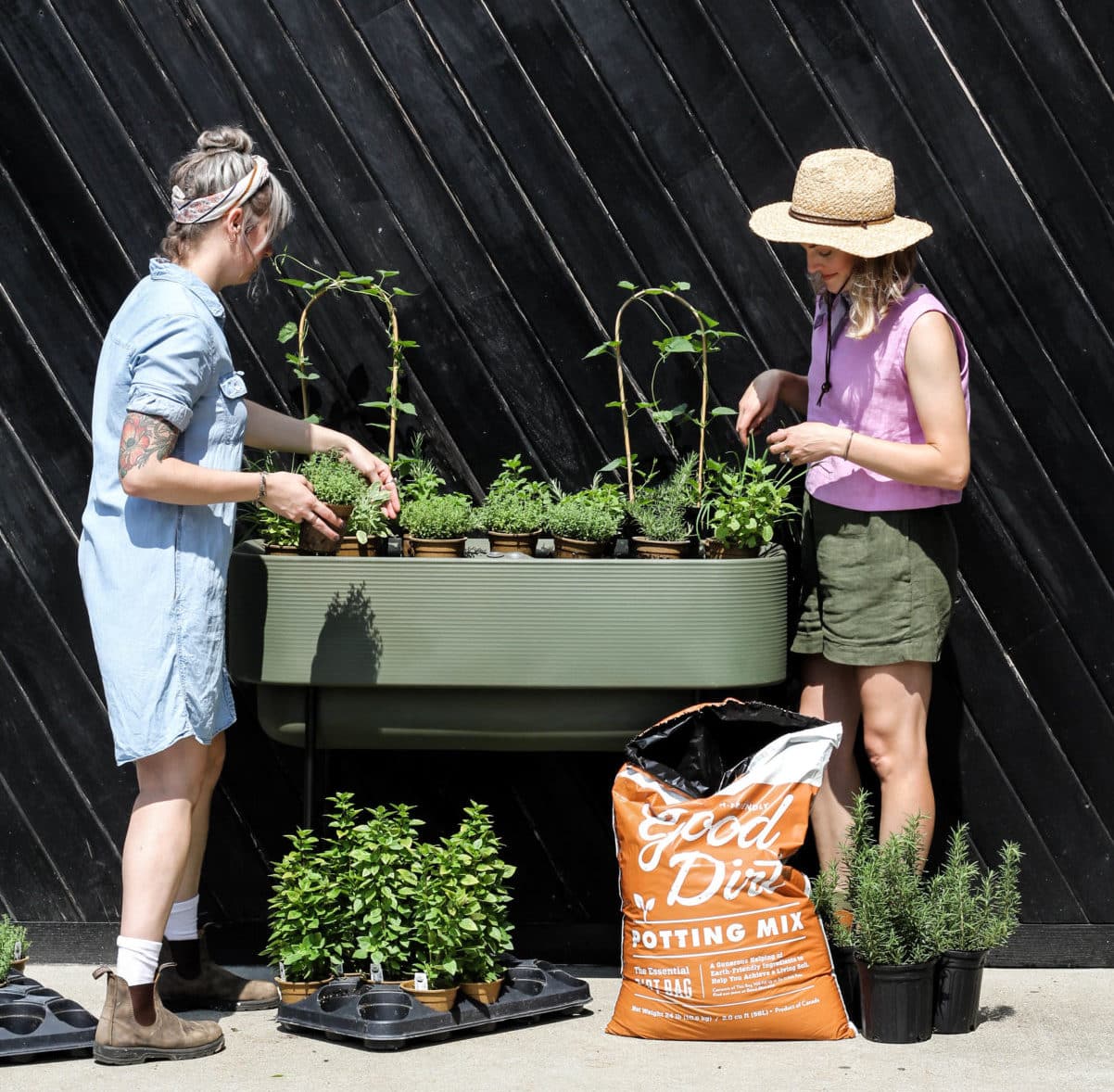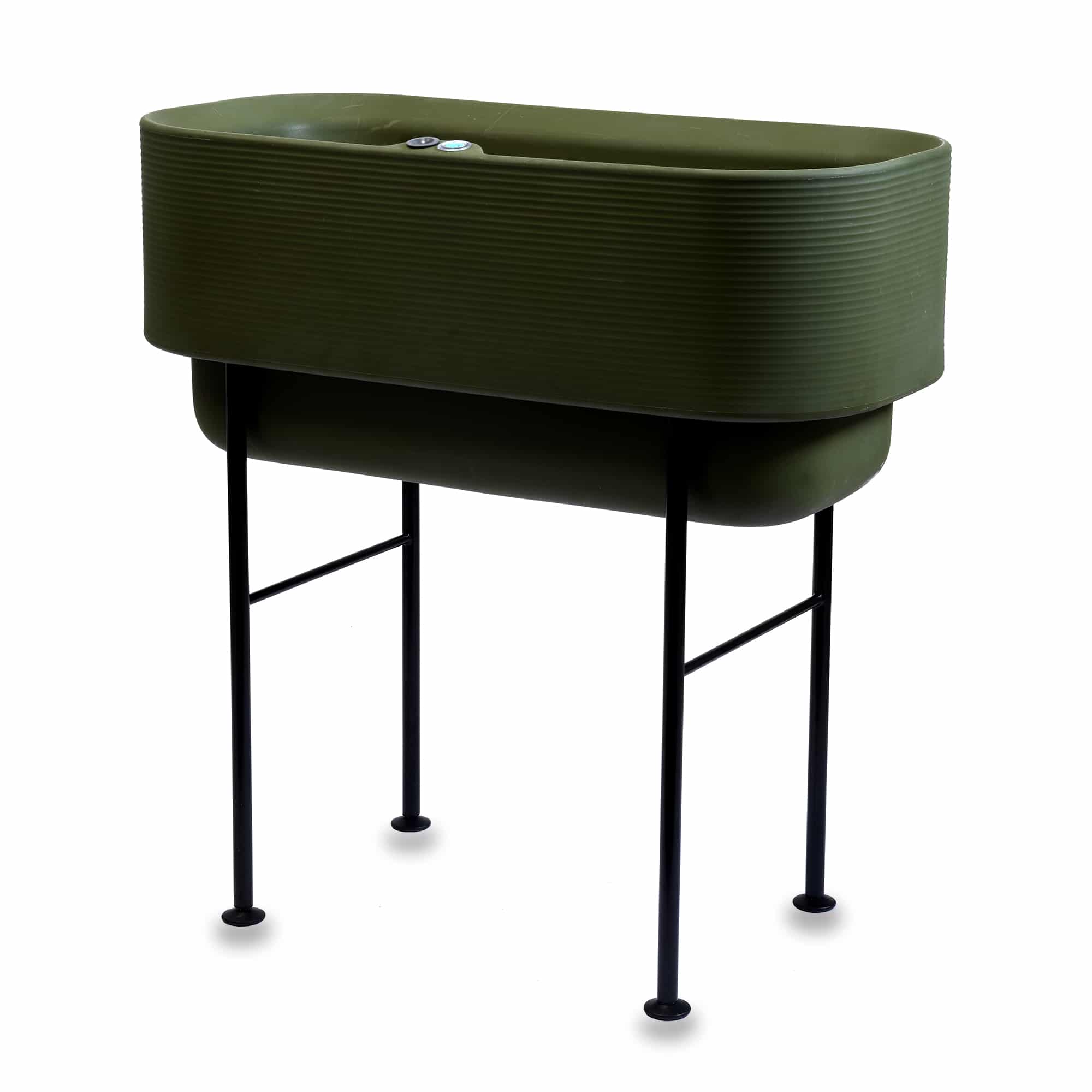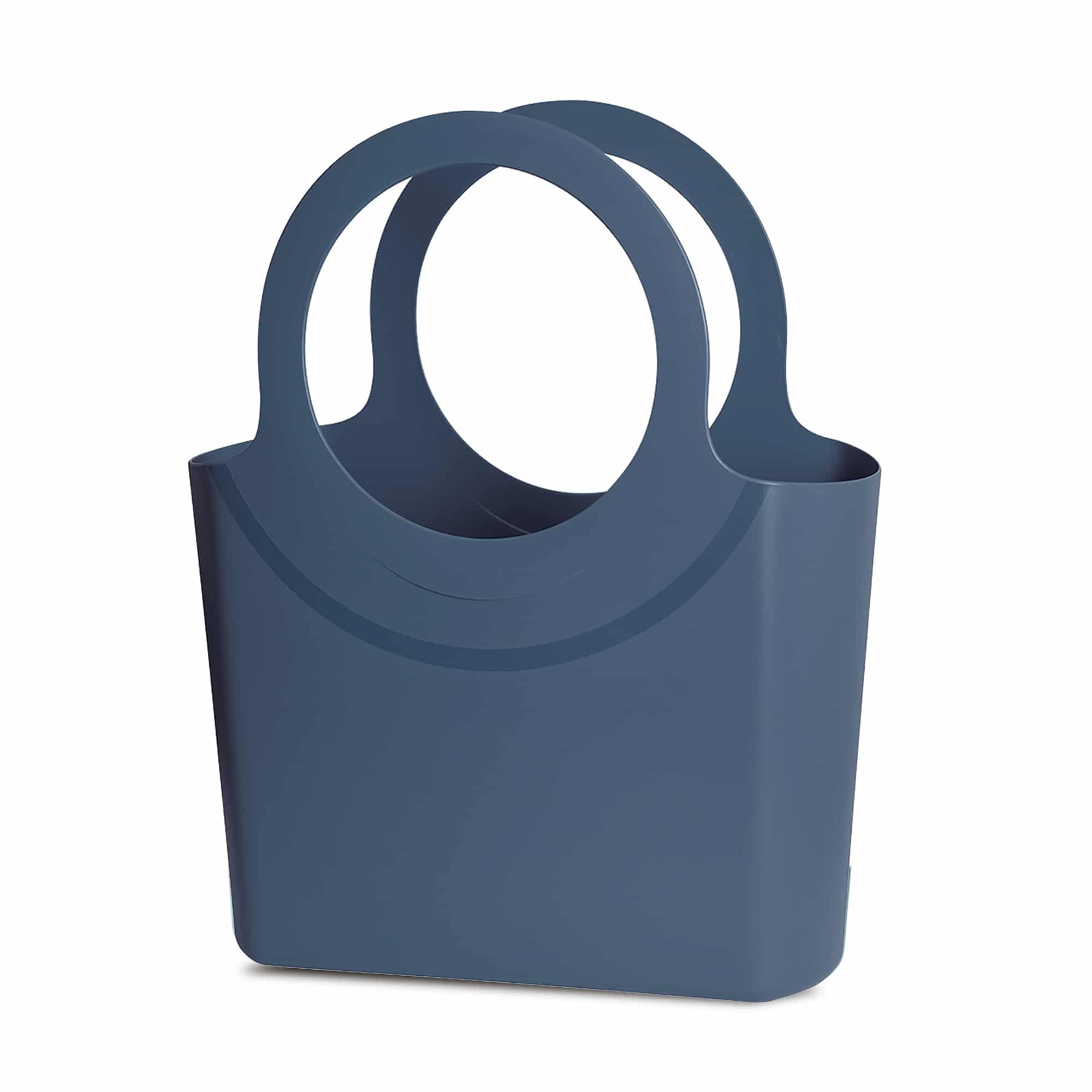An Herb Garden In a Planter
If you are a beginner gardening, consider growing herbs to start off your gardening experience by planting herbs in pots. Herbs have been a part of our history and culture since before history was recorded. Whether you are growing herbs for culinary purposes, medicinal, or cosmetic purposes, an herb garden can become a way to connect with your local culture or with the culture of your past. Are you missing your Italian grandmother’s home cooked dishes? Create an Italian herb garden filled with basil, oregano, rosemary, and thyme. There are many easy herbs to grow so let’s get you going with who, what, where, when, and how of growing herbs.
Who?
Who’s growing these herbs? You!
Are you growing them because you love cooking? Think about what herbs you use the most and pick a few of those to start off with. Are you growing a few vegetables in pots and want herbs that are good companion plants for those vegetables? A few common companion plantings are basil with your tomatoes to repel flies and tomatoes, borage with your strawberries to deter pests, and sage near your cabbage and carrots to deter cabbage moth and carrot fly. If you are getting the kids involved how about planting a pizza herb garden with garlic, basil, and oregano? Consider how quickly you want to start using your herbs, the materials you will need, and your experience level as you think through starting herbs from seed or buying a small starter plant. And think through who is going to enjoy the benefit the herbs being grown and go from there.
What?
What herbs do you want to grow? Look at what time of year you can grow your herbs in outdoor pots for your area. What herbs can easily be grown indoors? If you are going to start your herbs from seed, check the seed package to find out if you should start the seeds indoors or if you can direct sow the seeds into your planters. We will cover starting plants from seed in another article but it’s good to know that many herbs such as dill, fennel, and chamomile are easy to grow from seed. The materials you need to grow your herbs in a planter are simple also: good potting soil, a pot with a drainage hole, and easy access to water for keeping it watered. Whether you will need a large planter or small will depend on how big the herb is going to get so make sure you read the tags.
Where?
Now that you’ve decided what you want to grow, now you need to consider where you are going to grow it. The garden tech terminology that often throws people off is when someone reads that the plant needs “full sun.“ Most herbs need about six to eight hours of sunlight to grow well but there are a few exceptions that can handle light shade such as lemon balm, mint, cilantro, anise, borage, and parsley. When you are looking for a place to grow your herbs, look for a location that will offer those six to eight hours of sunlight so that you have plenty of options of herbs to grow. Some of the more common herbs used in cooking such as rosemary, sage, dill, oregano, basil, and lavender thrive in full sun. Are you considering an indoor windowsill garden in small pots? Remember that a sunny window works wonderfully for growing herbs indoors. And here’s a tip you’ll thank me for: mint likes to take over so plant it in a pot, preferably all by itself. Herbs also mix well in flower pots. Herbs like lemongrass, parsley, and fennel add beautiful texture to an ornamental flower combination in a planter.
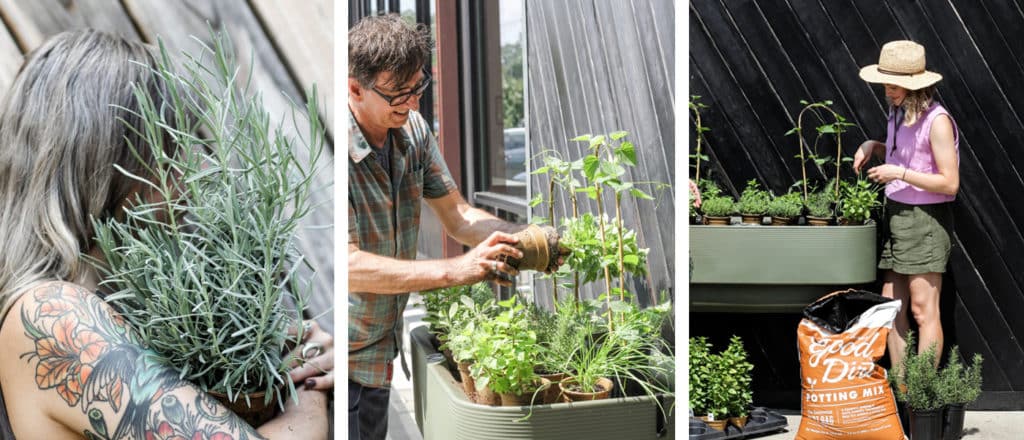
When?
You can grow herbs any time of the year if you grow them indoors and use a grow light. Some herbs, however, are more seasonal when grown outdoors. Cilantro, chervil, chives, dill, and parsley are well suited for growing in cool weather. Cool-weather herbs can be sown directly in the garden a month or more before the last frost in spring for late spring harvest and again in late summer for fall harvest.
How?
You can grow almost any herb in a container. However, if you’re mixing herbs in the same pot, you have to be sure you’re using plants with similar growing requirements. For example, some herb plants need more water than others, and some need more hours of sunlight than others they get. Some herbs thrive in self-watering containers because they like a constant level of moisture. Plants, such as chives, parsley, marjoram, and mint, are particularly good candidates for growing in self-watering pots. When harvesting your herbs, keep in mind that early morning is best and to wash them gently before cooking. Herbs need little care other than watering but be aware that some herbs are wonderful host plants for many of our beneficial insects. For instance, don’t be surprised to see your fennel or dill or parsley being consumed by caterpillars. Those caterpillars will soon be beautiful swallowtail butterflies and your herbs will grow back!
Have fun with your new herb garden ideas and feel free to ask us questions. We love being a part of helping you grow.
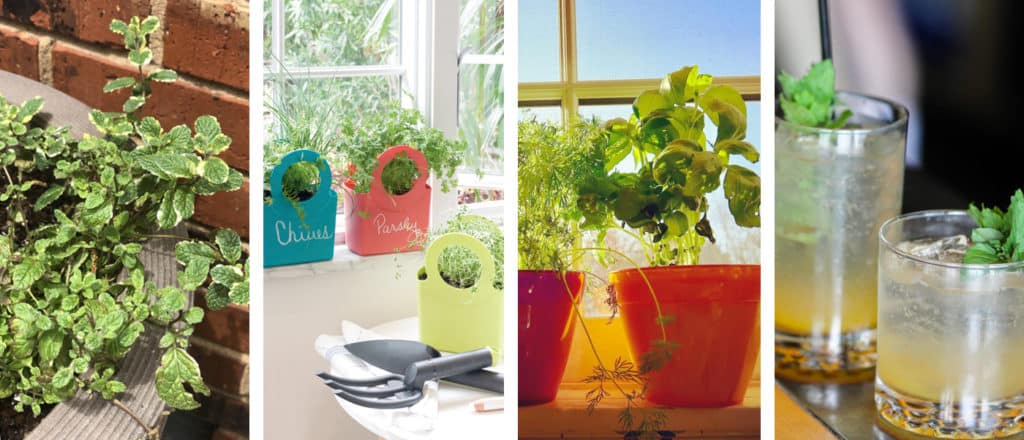
Learn more with this helpful video from P. Allen Smith.
